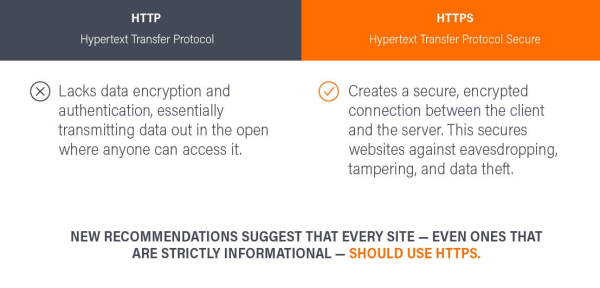In the world of website optimization, every small update can have a big impact. You may have heard about the HTTPS/SSL update, but do you really understand its significance? Well, let’s break it down. The HTTPS/SSL update refers to a change in Google’s algorithm that prioritizes websites with secure connections over those without. This shift has not only benefited user safety, but it has also affected search engine rankings in a significant way. So, if you want to stay in the SEO game, buckle up and let’s explore the impact of this update together.
What is HTTPS/SSL?
Review contents
Definition of HTTPS
HTTPS stands for Hypertext Transfer Protocol Secure. It is the secure version of HTTP and is used to establish a secure connection between a user’s browser and a website. HTTPS encrypts the data transferred between the browser and the website, providing an extra layer of security.
Definition of SSL
SSL, or Secure Sockets Layer, is the technology that enables the secure connection between a user’s browser and a website. It ensures that the data transmitted between the browser and the website remains confidential and cannot be intercepted by unauthorized parties.
Difference between HTTP and HTTPS
The main difference between HTTP and HTTPS lies in the level of security they provide. While HTTP transfers data in plain text, HTTPS uses encryption to protect the data. This means that any data sent over HTTPS is encrypted and can only be decrypted by the intended recipient. HTTPS also authenticates the identity of the website, providing assurance to the user that they are accessing the correct website and not a fraudulent one.
Introduction to SEO
Definition of SEO
SEO, or Search Engine Optimization, is the practice of optimizing a website to increase its visibility and rankings on search engine results pages. SEO involves various strategies and techniques, such as keyword research, on-page optimization, link building, and content creation, to improve a website’s organic search performance.
Importance of SEO for websites
SEO is crucial for websites because it helps them attract organic traffic from search engines. When a website ranks higher on search engine results pages, it receives more visibility and is more likely to attract relevant visitors. This can lead to increased brand exposure, website traffic, and potential conversions. SEO is a long-term investment that can drive sustainable growth for businesses.
This image is property of www.sherbetdonkey.co.uk.
The Need for HTTPS/SSL Update
Increased security concerns
With the rise of cyber attacks and data breaches, internet users have become more concerned about the security of their data. The HTTP protocol, being unencrypted, poses a risk as it allows attackers to intercept sensitive information, such as passwords and credit card details. The HTTPS/SSL update was necessary to address these security concerns and provide a safer browsing experience for users.
User trust and confidence
When users visit a website, they want to feel confident that their personal information is protected. Seeing the HTTPS padlock in the browser’s address bar indicates that a website has taken steps to secure their data. Websites without HTTPS may be viewed as less trustworthy, and users may hesitate to provide their personal information or make online transactions. Implementing HTTPS/SSL is crucial for building trust and credibility with users.
Google’s push towards a secure web
Google, the dominant search engine, has been actively promoting a secure web for several years. In 2014, they announced that HTTPS would be used as a ranking signal, meaning that websites with HTTPS would have a potential boost in their search rankings. This push towards a secure web was aimed at encouraging website owners to adopt HTTPS/SSL and enhance the overall security of the internet.
Impact on SEO Rankings
Boost in rankings for HTTPS websites
One of the significant impacts of the HTTPS/SSL update on SEO was the potential boost in rankings for websites that implemented the update. Google’s algorithm favors secure websites, and having HTTPS can be a positive ranking factor. While the effect of HTTPS on rankings may not be substantial on its own, it can contribute to a website’s overall SEO performance and help it achieve higher visibility in search results.
Penalties for non-HTTPS websites
In addition to the potential ranking boost for HTTPS websites, non-HTTPS websites may face penalties in search rankings. Google started labeling non-HTTPS websites as “Not Secure” in Chrome browser, which could deter users from visiting such websites. Moreover, Google has stated that in the future, they may increase the weight of HTTPS as a ranking signal, which could result in further penalties for websites that do not adopt SSL.
Mixed content issues
When migrating from HTTP to HTTPS, websites may encounter mixed content issues. This occurs when a website serves some elements, such as images, scripts, or stylesheets, over HTTP instead of HTTPS. Mixed content can cause certain browsers to display security warnings to the users, affecting their trust and negatively impacting SEO rankings. It is crucial for website owners to audit and fix any mixed content issues during the migration process.
This image is property of www.searchenginejournal.com.
Migration to HTTPS/SSL
Obtaining an SSL certificate
To migrate a website from HTTP to HTTPS, the first step is to obtain an SSL certificate. There are various types of SSL certificates available, such as domain validated (DV), organization validated (OV), and extended validation (EV) certificates. The type of certificate required depends on the level of validation and security needed for the website. SSL certificates can be purchased from reputable certificate authorities (CAs) or obtained for free through initiatives like Let’s Encrypt.
Updating internal links and redirects
Once the SSL certificate is obtained, internal links within the website need to be updated to point to the HTTPS version. This includes updating links within the content, navigation menus, and any hardcoded URLs. It is essential to ensure that all internal links are correctly updated to prevent any broken links or redirection issues.
301 redirects for ranking preservation
To preserve the SEO rankings and link equity of the HTTP pages, it is crucial to set up 301 redirects from the HTTP version to the HTTPS version of the website. A 301 redirect is a permanent redirect that notifies search engines that a page has been moved permanently to a new location. This redirect ensures that users and search engines are directed to the secure HTTPS version of the website, preserving the SEO benefits and minimizing any negative impact on rankings.
Technical SEO Considerations
Site-wide HTTPS implementation
Implementing HTTPS across the entire website, including all pages and subdomains, is crucial for ensuring a seamless and secure browsing experience for users. It is important to ensure that all website assets, such as images, scripts, and stylesheets, are loaded over HTTPS. By implementing HTTPS site-wide, website owners can avoid any mixed content issues and provide a consistent user experience.
Monitoring and fixing mixed content
After the migration to HTTPS, it is important to regularly monitor the website for any mixed content issues. Website owners should check for insecure elements being served over HTTP and update them to HTTPS. This can be done by using tools like the browser’s developer console or third-party tools that scan the website for mixed content. Fixing mixed content issues promptly will help maintain the security and trustworthiness of the website.
Proper canonicalization and redirects
During the migration, it is important to set the canonical URLs of the HTTPS pages to point to themselves. Canonical tags help search engines understand which version of a URL should be considered the primary version. Additionally, proper redirects should be set up to ensure that any HTTP URLs are redirected to their corresponding HTTPS versions. This helps consolidate ranking signals and prevent duplicate content issues.
This image is property of images.theengineeringprojects.com.
User Experience and SEO
Improved trust and credibility
Implementing HTTPS/SSL can significantly enhance the trust and credibility of a website. Users are more likely to engage with a website that is secure and displays the HTTPS padlock in the browser’s address bar. By providing a secure browsing experience, website owners can instill confidence in their users and encourage them to stay longer on the site, ultimately improving the overall user experience and SEO performance.
Impact on conversion rates
HTTPS/SSL can have a positive impact on conversion rates. Users are more willing to engage in online transactions or provide their personal information on secure websites. By implementing HTTPS/SSL, website owners can alleviate any concerns users may have about data security, leading to higher conversion rates. Additionally, some payment processors require websites to have HTTPS in order to securely process transactions, making it essential for e-commerce websites.
Mobile-friendliness and HTTPS
With the increasing use of mobile devices for browsing the internet, having a mobile-friendly website is crucial for SEO. Google has indicated that mobile-friendly websites are given priority in mobile search results. As HTTPS is a factor in Google’s mobile-friendly algorithm, it is important for website owners to ensure that their mobile versions are also secured with HTTPS. This ensures a positive user experience on mobile devices and helps improve mobile search rankings.
Adoption and Industry Trends
Percentage of HTTPS websites
The adoption of HTTPS has been steadily increasing over the years. According to Google’s transparency report, as of October 2021, over 98% of total browsing time on Chrome occurs on HTTPS websites across all platforms. This indicates a significant shift towards a more secure web and highlights the importance of HTTPS in today’s online landscape.
Uptake across different industries
The adoption of HTTPS has been more prevalent in certain industries compared to others. E-commerce websites, online banking platforms, and websites that handle sensitive user information have been early adopters of HTTPS. However, there are still industries where HTTPS adoption lags, potentially leaving users vulnerable to data breaches. It is important for all industries to prioritize the adoption of HTTPS/SSL to ensure the security and privacy of their users.
Future predictions
The trend towards a more secure web is expected to continue in the future. As users become more aware of online security risks and demand safer browsing experiences, websites will need to prioritize the implementation of HTTPS/SSL. Additionally, search engines are likely to place increasing importance on HTTPS as a ranking signal, further incentivizing website owners to adopt SSL. It is crucial for businesses to stay ahead of these trends and prioritize the ongoing security of their websites.
This image is property of blog.gigamon.com.
Challenges and Roadblocks
Costs and budget implications
One of the main challenges of implementing HTTPS/SSL is the associated costs and budget implications. Obtaining an SSL certificate can incur costs, especially for the higher level certificates. Additionally, there may be costs involved in updating internal links, implementing redirects, and monitoring the website for mixed content issues. However, the investment in HTTPS/SSL is necessary for the long-term security and success of a website.
Potential performance issues
Implementing HTTPS/SSL can potentially cause performance issues, although this is becoming less common as technology improves. HTTPS requires additional computational resources for encryption and decryption, which can result in slower page load times if not optimized properly. Careful consideration of server configuration, caching mechanisms, and content delivery networks (CDNs) can help minimize any potential performance impact.
Backlink and referral traffic implications
Migrating to HTTPS/SSL can have implications for backlinks and referral traffic. Backlinks are hyperlinks from other websites that point to a website. It is important to update and redirect any backlinks pointing to the HTTP version of the website to ensure they pass link equity to the HTTPS version. Failure to update backlinks may result in a loss of ranking signals and referral traffic. Monitoring and updating backlinks is crucial during the migration process to maintain SEO performance.
Conclusion
Ongoing importance of HTTPS/SSL
The HTTPS/SSL update has had a significant impact on SEO, highlighting the ongoing importance of securing websites. With increased security concerns and the push towards a secure web by search engines like Google, implementing HTTPS/SSL is vital for website owners. HTTPS/SSL not only enhances security but also improves user trust, credibility, and overall SEO performance.
SEO benefits of the update
The migration to HTTPS/SSL can have positive effects on SEO rankings. Secure websites may receive a boost in search rankings, while non-HTTPS websites may face penalties. The update also improves user experience, conversion rates, and mobile-friendliness, further benefiting SEO. While there may be challenges and roadblocks associated with the migration, the long-term SEO benefits make implementing HTTPS/SSL a worthwhile investment for website owners.
This image is property of www.searchenginejournal.com.































